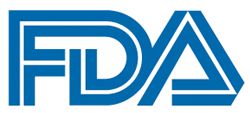FoundationOne CDx Granted FDA Approval, CMS Agrees to Provide Coverage
The FoundationOne CDx (F1CDx) cancer biomarker assay has been granted FDA approval concurrently with a decision from the Centers for Medicare & Medicaid Services to provide insurance coverage for the next-generation sequencing NGS-based in vitro diagnostic test.

The FoundationOne CDx (F1CDx) cancer biomarker assay has been granted FDA approval concurrently with a decision from the Centers for Medicare & Medicaid Services (CMS) to provide insurance coverage for the next-generation sequencing (NGS)-based in vitro diagnostic (IVD) test.
According to the FDA, F1CDx detects 324 different genes and is a "more extensive" assay that can identify actionable mutations across 5 tumor types for 15 different targeted therapies. Additionally, the assay can detect microsatellite instability and tumor mutational burden, which have been associated with response to immunotherapy. In clinical trial results, F1CDx could accurately detect substitutions, short insertions, and deletions approximately 94.6% of the time for each of the 324 genes.
The agency said the test can be used as a companion diagnostic to identify specific mutations for nonsmall cell lung cancer, melanoma, breast cancer, colorectal cancer, or ovarian cancer. The F1CDx can detect genetic mutations that are indicated for multiple treatments, extending beyond the previous “one test for one drug” model. Among the 324 genes, the F1CDx assay can detect alterations inEGFR, KRAS, BRAF, BRCA1/2, ALK, and several other genes with emerging therapeutics, such as NTRK1/2/3.
“The F1CDx can help cancer patients and their healthcare professionals make more informed care decisions without the often-invasive process of extracting tumor samples multiple times to determine eligibility for a single treatment or enrollment in a clinical trial,” Jeffrey Shuren, MD, director of the FDA’s Center for Devices and Radiological Health (CDRH), said in a press release. “With the run of one test, patients and health care professionals can now evaluate several appropriate disease management options.”
CMS issued a proposed national coverage determination of the F1CDx and other similar NGS IVDs for Medicare beneficiaries with recurrent, metastatic, or advanced stage IV cancer who have not been previously tested using the same NGS technology and continue to seek further cancer therapy. Use of a test as a diagnostic also includes the ability to help patients and their treating physicians determine candidacy for clinical trials.
The test is the second IVD to be approved and covered after overlapping review by the FDA and CMS under the Parallel Review Program, a voluntary program that designed to help Medicare beneficiaries get earlier access to innovative medical technologies.
“By leveraging two policy efforts aimed at expediting access to promising new technologies, we’ve been able to bring patients faster access to a breakthrough diagnostic that can help doctors tailor cancer treatments to improve medical outcomes and potentially reduce health care costs,” said FDA Commissioner Scott Gottlieb, MD. “The FDA’s Breakthrough Device Program and Parallel Review with CMS allowed the sponsor to win approval for this novel diagnostic and secure an immediate proposed Medicare coverage determination within six months of the FDA receiving the product application.”
The F1CDx had not been previously submitted for the FDA’s review because it is a laboratory-developed test. The agency has not generally enforced premarket review and other applicable requirements for such tests. However, at the request of Foundation Medicine, developer of the F1CDx, the FDA approved the assay for the newly established Breakthrough Device Program because of the test’s potential to consolidate multiple companion diagnostic claims for patients and healthcare providers in a single test.